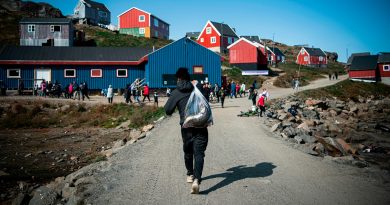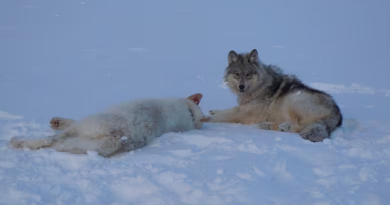Research mission aims to better understand climate change in Arctic Canada
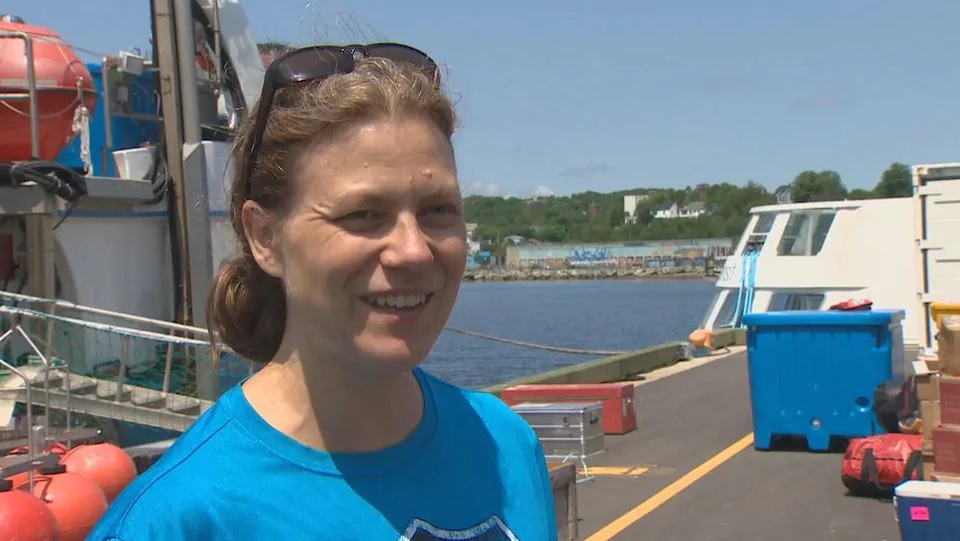
Scientists are loading a converted crab fishing boat in Dartmouth, N.S., in Atlantic Canada, with sophisticated instruments for a mission to measure climate change in the Canadian Arctic.
The scientists are testing their equipment in sea trials off Halifax before heading to Southampton Island in northwestern Hudson Bay later this summer.
Southampton Island is one of Canada’s largest gathering places for Arctic marine mammals and a place where people have lived for millennia.
“The communities up north, there’s marine mammals and fish that they depend on and we want to know if the food web is going to be able to continue to support those specific species,” said Andrea Niemi, a Department of Fisheries and Oceans (DFO) research scientist based in Winnipeg.
The ship being used is the William Kennedy, a 20-metre boat owned by the Arctic Research Foundation, the non-profit co-founded by philanthropist Jim Balsillie, former CEO of Research in Motion.
Area never surveyed in detail
Niemi is part of the Southampton Island Marine Ecosystem Project, a three-year study led by the University of Manitoba and co-funded by the federal government and the Marine Environmental Observation Prediction and Response (MEOPAR) network, a Halifax-based research centre of excellence studying marine environmental risk.
Government and university scientists from many disciplines are examining the region’s oceanography, productivity and sea life in an effort to predict changes to the ecosystem.
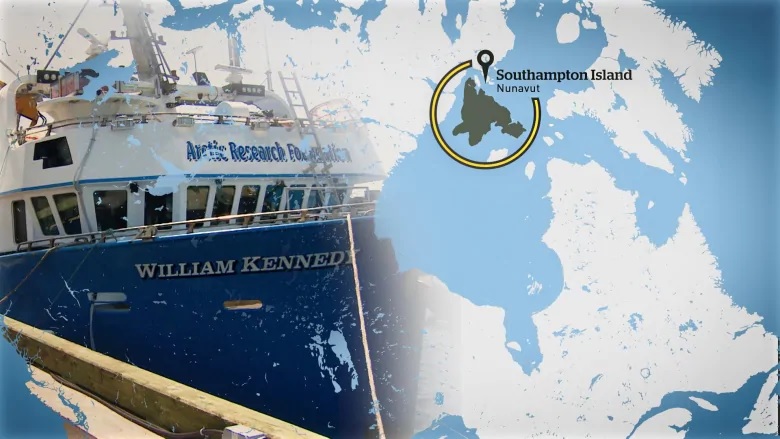
The retreat of sea ice and longer open-sea seasons has made a warming climate visible in Canada’s North.
For example, beluga whales are entering Hudson Bay earlier and staying longer.
But the mission must confront one of the ironies of climate change in Canada: where it is most dramatically present today was the least studied in the past.
The difficulty of quantifying changes
Unlike Canada’s Atlantic Ocean, where scientists have measured marine environmental conditions for decades, there is little or no baseline information in the Arctic.
That makes it difficult to quantify changes in the ecosystem, said Niemi, an expert in tiny marine organisms known as zooplankton.
“I’d really like to be able to say what’s changed or has not changed, but the issue we have is that we just don’t have the old information to compare it to,” she said.
Niemi said the energy-rich zooplankton at the base of the food web are present off Southampton Island and the species changes depending on water depth.
“But to say is this different from 10 years ago, we just don’t know,” she said. “To see if there are changes over time we can’t say right now, but we want to keep building up and looking for that because it does have effects throughout the food web.”
Arctic Ocean report expected after next election
Niemi is an author of DFO’s next big publication on climate change, a report on the state of the ocean in the Arctic.
Earlier this year, the department released its first assessment, The State of the Atlantic Ocean, which summarized the overall health and trends in the Atlantic Ocean based on scientific research and monitoring from DFO and Environment and Climate Change Canada.
It said warmer sea temperatures, less ice cover and changing currents in Canada’s Atlantic Ocean are the result of global climate change.
The Arctic version will lack the detailed baseline data available in the Atlantic.
Looking back 2,000 years
Micropaleontologist Audrey Limoges from the University of New Brunswick in Fredericton is studying core samples taken around Southampton Island, which reveal natural variability over time.
Limoges said looking at what happened in the past could help measure changes in the present.
“If we can go back in time 2,000 years ago, we have these transitions from colder to warmer episodes and we can see how this system reacted to those changes,” she said in a wharfside interview in Dartmouth.
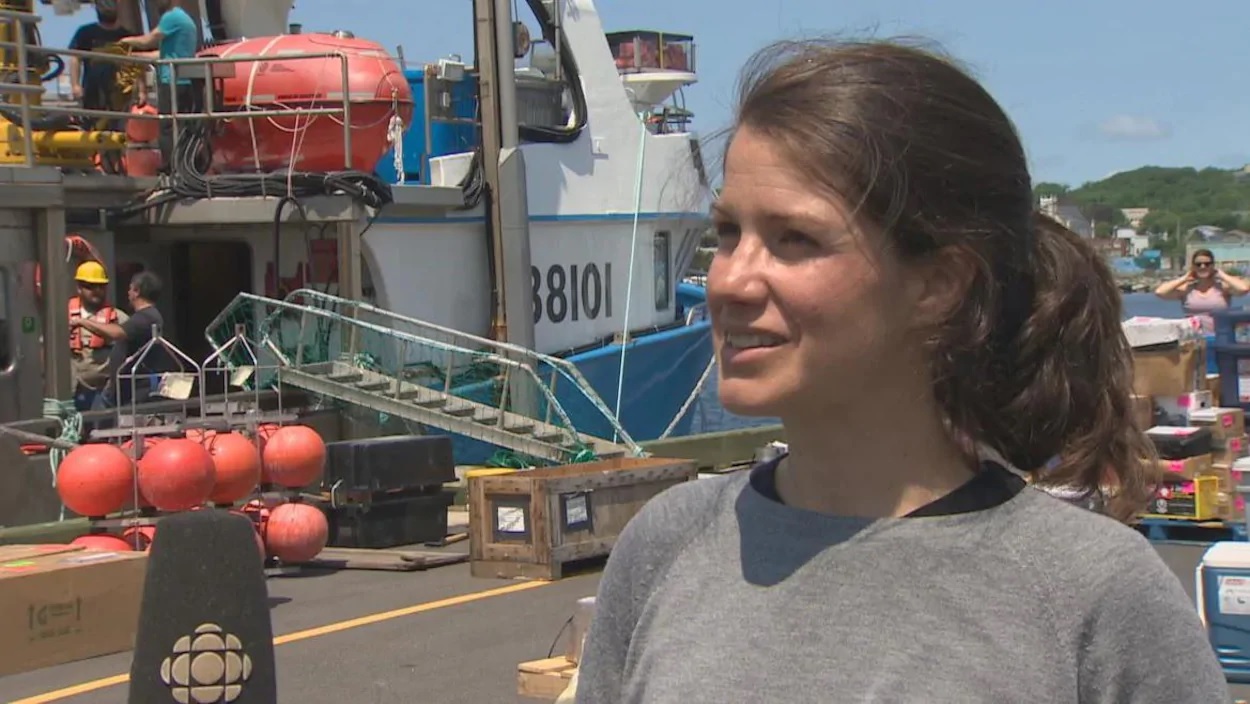
Limoges said climate-related changes are not always easily perceived by most Canadians living in urban areas in the south.
She said Canada’s North shows climate change is occurring and coming our way.
“This kind of mission is extremely important,” she said.
Related stories from around the North:
Canada: Ottawa must raise funding for climate science or risk falling behind, scientists say, CBC News
Finland: Finland must further reduce logging to preserve carbon sink, environmental institute says, Yle News
Norway: Temperatures on Svalbard have been above normal for 100 straight months, The Independent Barents Observer
Russia: Warmest winter ever on the Northern Sea Route, The Independent Barents Observer
Sweden: Local councils more interested in climate change preparedness, Radio Sweden
United States: Sea levels could rise by up to 2 metres by 2100, new study finds, CBC News

